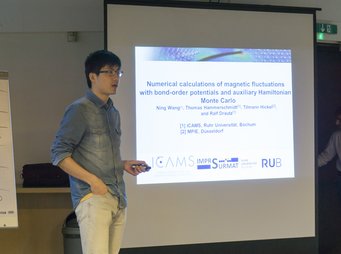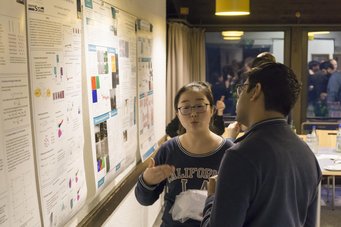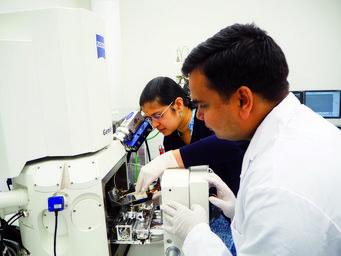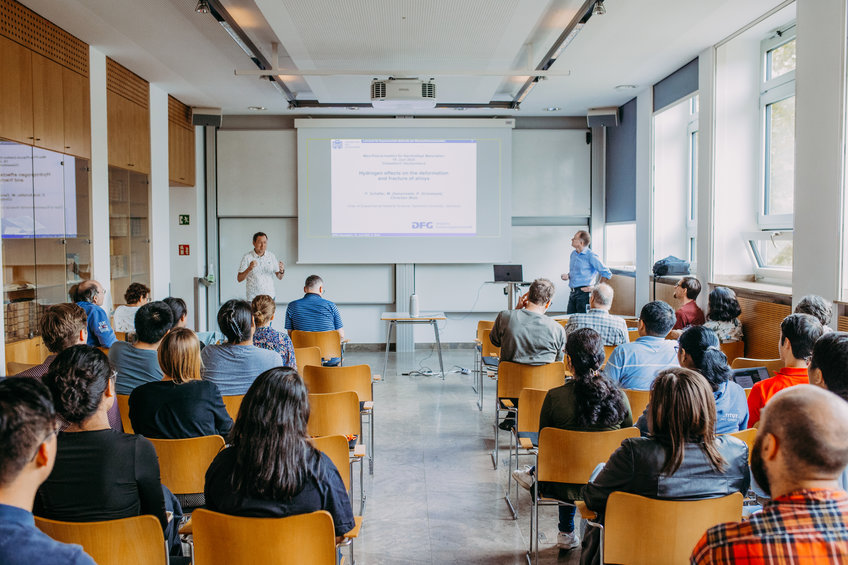
Scientific Curriculum
The scientific activities are the main part of the curriculum. Lectures convey the necessary interdisciplinary background in materials science. Once per year the annual retreat takes place and a scientific workshop on a specific SusMet-related topic is organized.
The SusMet Lectures give insight into the various aspects of modern materials science. There are two basic lectures
- Basic materials-related aspects of sustainability
- Large-scale metallurgical processes
and six advanced lectures the doctoral students select 2 of
- Materials science topics of a hydrogen-based economy
- Sustainable primary synthesis of aluminum and iron: electrolysis, plasma and direct reduction
- The role of multi-scale modelling in metallurgical processes and materials sustainability
- Characterization techniques for materials: from atomistics to the meso-scale
- Elementary mechanics and damage processes
- Component life extension: corrosion, stress-corrosion, abrasion, tribology and fatigue
The lectures are two-day block courses concluded by exams.
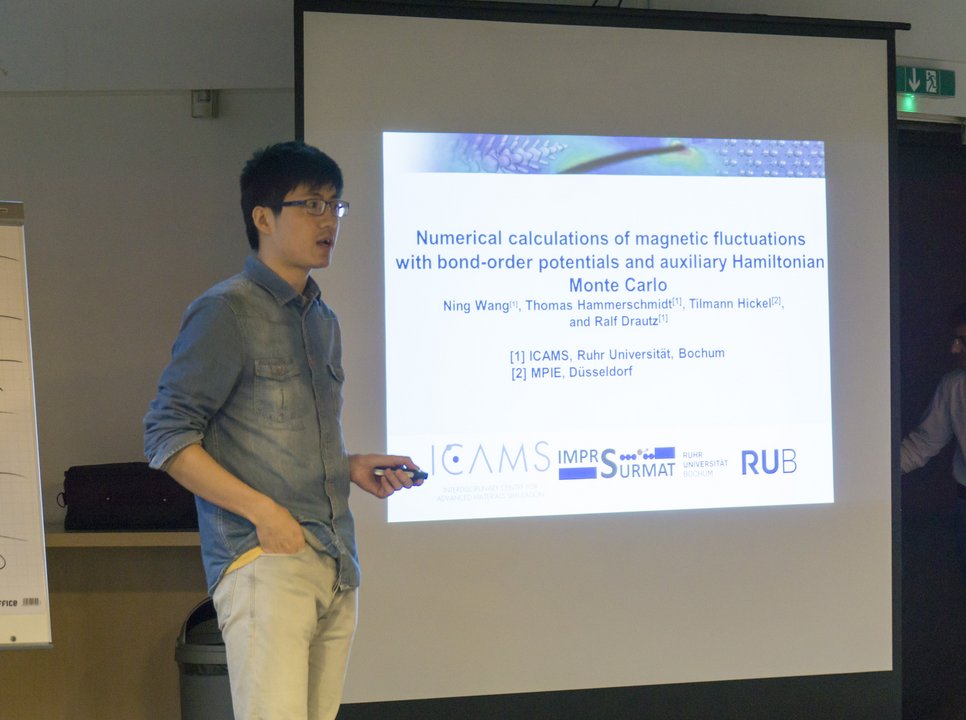
The annual retreat takes place at an external venue for 3 days. All doctoral students and some senior scientists meet and discuss the ongoing projects presented by the students. Through the scientific discussion fruitful input is given to the students as well as existing collaborations are enhanced and new ones started. Moreover the annual retreat is a group event of the whole IMPRS SusMet community where people especially from different working places get to know each other on a basis which goes beyond the everyday work.
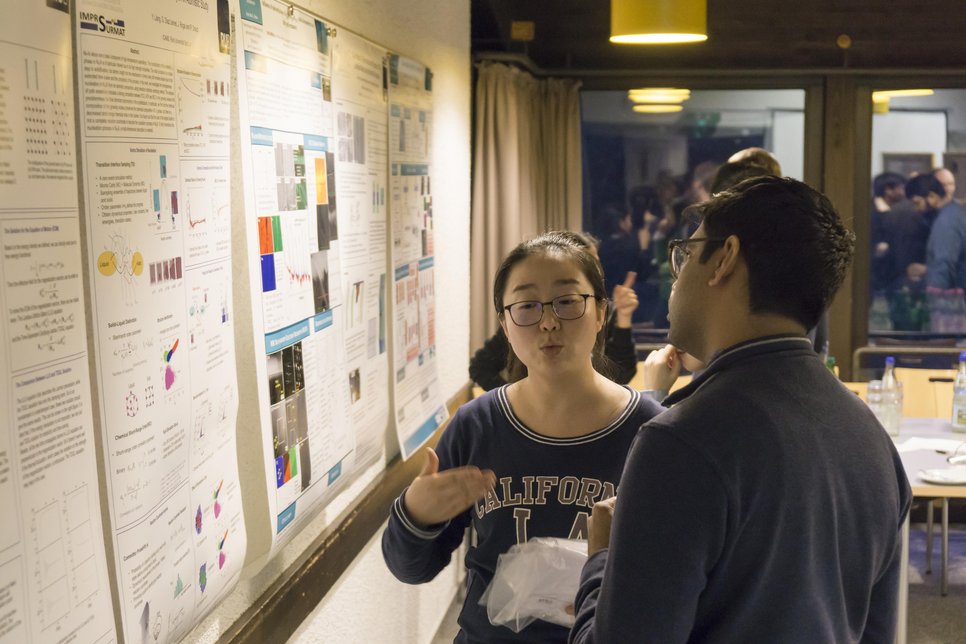
The workshops are on specific SusMet-related topics. They last one day and are organized together with the doctoral students. They invite two or three external guest speakers and organize further talks as well as a poster session both presented by IMRPS-SusMet students.
The workshops give a deeper scientific insight to a relevant and current topic and at the same time strengthen the organizational and management abilities of some doctoral students organizing the workshop.
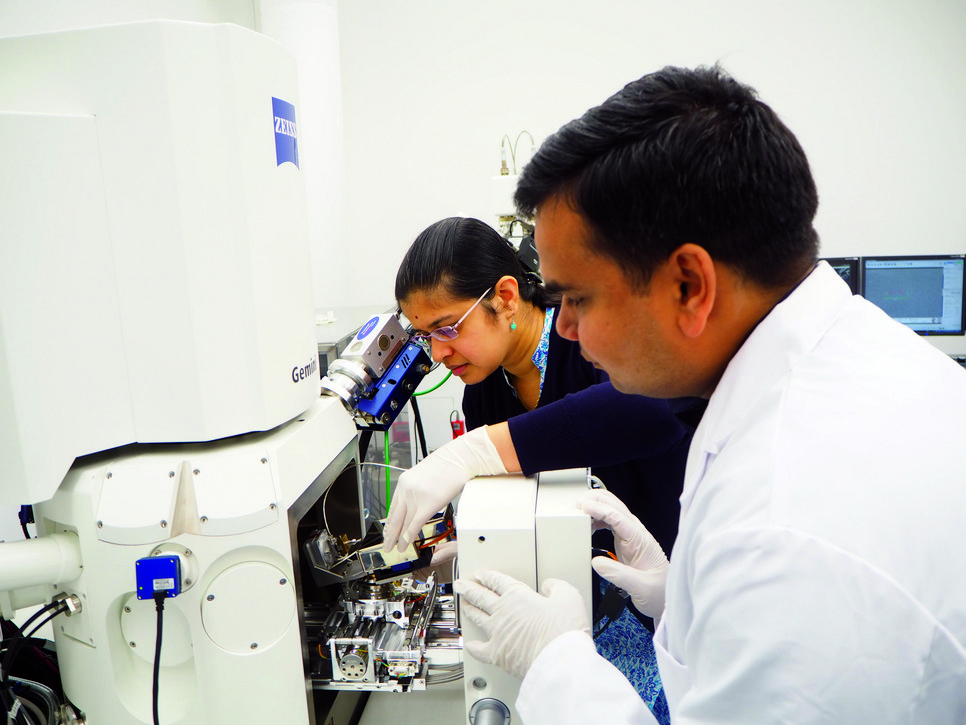
The Lab-exchange is taking place once during their PhD to foster the collaboration. The doctoral students work at another partner institution, e.g. with the second supervisor, for a few weeks, usually in the second year of the PhD.
